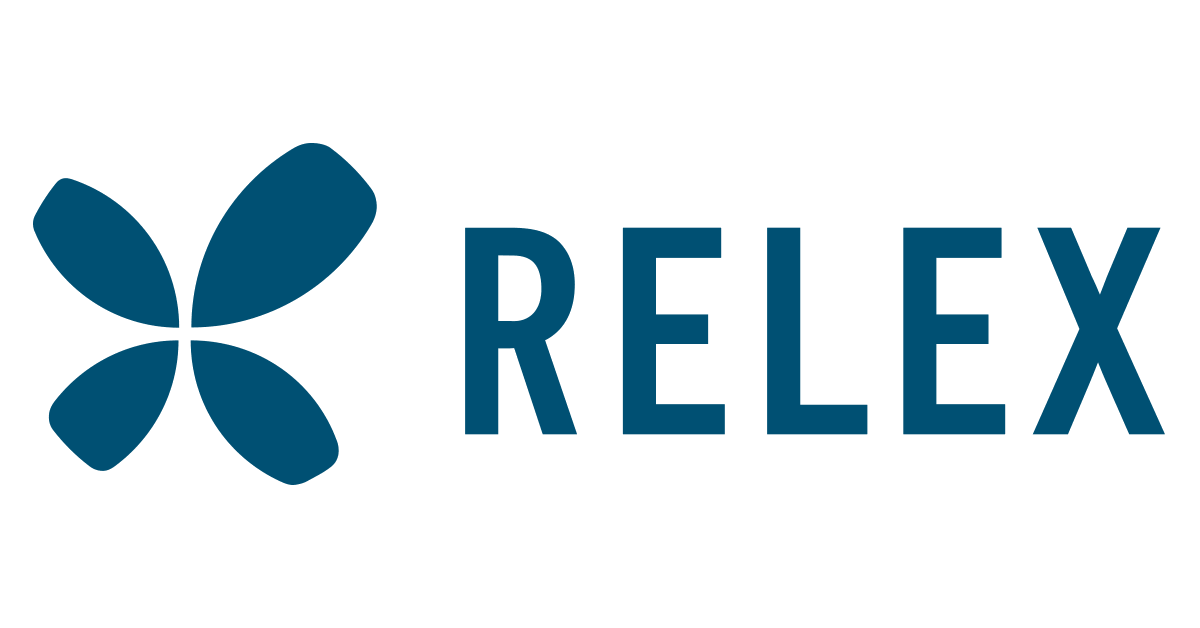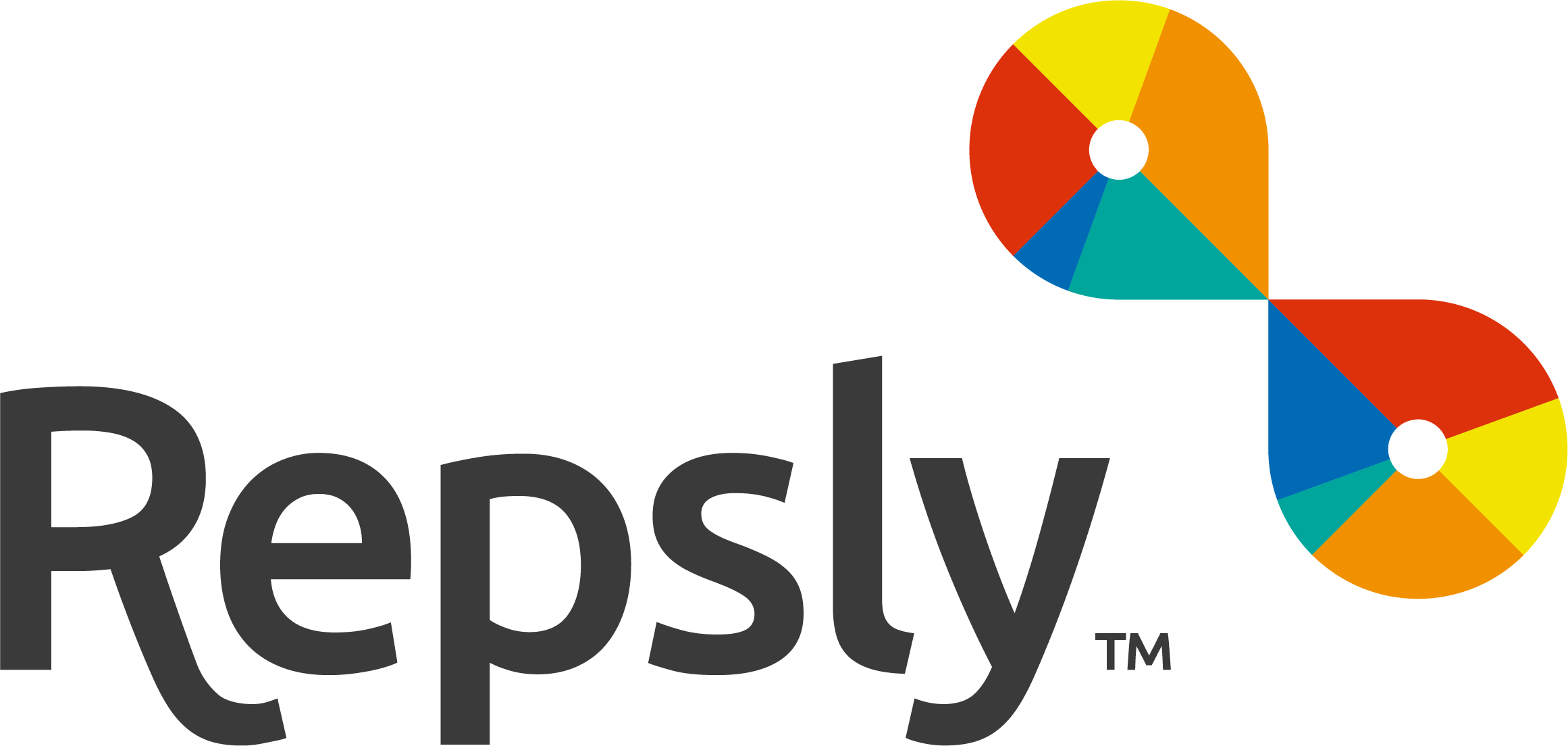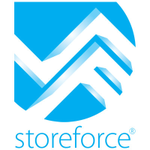Yes, retail execution software is intended to be accessible from numerous devices and platforms. This allows customers to utilize the software on their desktop PCs, laptops, tablets, and phones. Furthermore, most retail execution software is compatible with both iOS and Android operating systems, allowing users to use it from any device they like. This functionality is convenient and flexible for retailers who need to manage their operations on the go.
List of 20 Best Retail Execution Software
Shelvspace is a retail solution for maximizing operations, enhancing product visibility, and boosting sales. Equipped with cutting-edge capabilities like real-time analytics, simplified task coordination, and effective communication tools, this platf...Read More Shelvspace
the Botree Retailer App solution for boosting your sales! Give your retailers the ability to easily place orders and unlock new revenue opportunities. Enhance your distribution strategies, increase product availability, and cultivate brand loyalty. E...Read More Botree Retailer App
RELEX Solutions is a retail software solution designed to give your business a competitive advantage. Our comprehensive tools provide customized product assortments, optimized space utilization, accurate demand forecasting and replenishment, and effi...Read More RELEX Solutions
Rallyware is a performance enhancement solution for sellers. Our all-inclusive platform utilizes strategic activities, immersive gamification elements, and valuable analytics to elevate every seller to the top of their game. With tools for client rel...Read More Rallyware
Natural Insight is the leading workforce management solution that elevates in-store productivity and effectiveness. Our user-friendly platform empowers teams to streamline processes, improve compliance, and make data-driven decisions for exceptional...Read More Natural Insight
Movista is a leading SaaS solution revolutionizing the retail industry. With our innovative platform, we simplify and automate vital tasks for in-store teams, resulting in increased efficiency, reduced errors, and flawless display execution. Our serv...Read More Movista
Pazo is a operations management software designed to optimize your teams productivity. With Pazo, your frontline workers can efficiently handle processes, boost efficiency, and improve customer satisfaction. Our advanced features enable smooth operat...Read More Pazo
Zenput is a software designed to streamline the management of multiple restaurant locations. By automating tasks and providing real-time updates and reminders, it eliminates manual processes and increases employee efficiency, ultimately resulting in...Read More Zenput
Sterison Image Recognition, a software designed to enhance retail execution. By offering real-time visibility and streamlined store audits, it guarantees compliance with display standards and delivers valuable insights from shelf images. Stay ahead o...Read More Sterison Image Recognition
InfiViz is an advanced visual intelligence platform that harnesses the power of Image Recognition AI. It enables efficient in-store monitoring and simplifies store audits by delivering precise data on shelf metrics and inventory levels to your field...Read More InfiViz
eMobiz is a digital commerce solution that offers seamless integration, advanced user experiences, and powerful analytics. Our specialized solutions are tailored to drive your business forward and keep up with the ever-changing digital landscape. Tra...Read More eMobiz
Repsly is a retail execution platform tailored for field teams in the consumer packaged goods (CPG) industry. Combining sales data, in-store observations, and field team activities, Repsly provides brands with valuable insights into their retail perf...Read More Repsly
NielsenIQ Shelf Architect solution for maximizing shelf space in retail stores. This tool utilizes advanced analytics to help businesses optimize product placement, improve the shopping experience, and drive sales. With valuable insights and efficien...Read More NielsenIQ Shelf Architect
Hypertrade is the retail data platform that simplifies and centralizes data from multiple sources, providing valuable insights for businesses. With cutting-edge artificial intelligence and retail expertise, it streamlines processes, fosters collabora...Read More Hypertrade
Wiser solution for transforming retail strategies with valuable insights. Our powerful platform offers a wide range of features including price optimization and enhanced product visibility, enabling businesses to stay ahead in a constantly evolving m...Read More Wiser
Zipline - the leading retail management software that enhances communication, task management, and training. Its comprehensive features enhance operational efficiency, increase employee engagement, and seamlessly implement business strategies, making...Read More Zipline
ParallelDots ShelfWatch is a Image Recognition solution tailored for CPG and FMCG retailers. It simplifies shelf management and maximizes in-store efficiency. Utilizing advanced technology, ShelfWatch guarantees impeccable shelf organization, leading...Read More ParallelDots ShelfWatch
StoreForce is a retail solution designed to transform your business. With its cutting-edge features, StoreForce empowers your team to boost efficiency, foster customer engagement, and increase sales. Real-time analytics and advanced workforce managem...Read More StoreForce
WorkJam is a frontline management solution that boosts productivity and engagement in your organization. Its efficient task management, training, and communication features are completely customizable, ensuring a perfect fit for your business needs...Read More WorkJam
Yoobic is a retail software that streamlines operations, showcases products effectively, and implements successful sales strategies to increase conversions. Trusted by top brands such as Logitech and Lacoste, Yoobic offers a solution to transform you...Read More Yoobic
Learn More About Retail Execution Software
- What Is Retail Execution Software?
- What Are The Recent Trends In Retail Execution Software?
- Benefits Of Using Retail Execution Software
- Important Factors To Consider While Purchasing Retail Execution Software?
- What Are The Key Features To Look For In Retail Execution Software?
- Why Do Businesses Need Retail Execution Software?
- How Much Time Is Required To Implement Retail Execution Software?
- What Is The Level Of Customization Available In Retail Execution Software?
- Which Industries Can Benefit The Most From Retail Execution Software?
- Conclusion
What Is Retail Execution Software?
Retail Execution Software (RES) is cutting-edge technology developed to help retailers enhance their in-store operations and streamline the retail execution process. It is a powerful system that assists merchants in successfully planning, executing, and monitoring their retail operations to achieve optimum efficiency and profitability. At its foundation, retail execution software enables retailers to match their in-store activities with their overall corporate goals and strategy.
It allows retailers to create and manage tasks, allocate them to the appropriate personnel, and monitor their progress in real time. One of the primary benefits of retail execution software is its ability to give merchants with extensive insights into their in-store performance. Retailers can utilize data analytics to uncover and evaluate patterns, detect potential difficulties, and make informed decisions to optimize their retail execution process.
Furthermore, retail execution software comes with comprehensive features for managing and optimizing in-store merchandising and promotions. It enables merchants to develop bespoke planograms, manage inventory levels, and track product placement for greater consistency and efficacy. RES also helps retailers improve their communication and collaboration, both internally and with their external partners.
It provides a consolidated platform for all stakeholders to communicate information, discuss updates, and work together on tasks, resulting in increased efficiency and coordination. In today's competitive retail world, where customer expectations are continuously changing, retail execution software provides a substantial edge to companies.
It enables them to provide a consistent and smooth purchasing experience to their clients, resulting in higher customer satisfaction and loyalty. Overall, Retail Execution Software is a critical tool for retailers seeking to improve in-store operations and promote corporate success. With its broad set of features and capabilities, it allows retailers to streamline their retail execution process and reach their intended goals in an efficient and effective way.
What Are The Recent Trends In Retail Execution Software?
In recent years, retail execution software has emerged as a critical tool for retailers seeking to streamline operations and increase profits. Retail execution software developments evolve in lockstep with the retail industry.
Here are some of the latest trends influencing the retail execution software market.
1. Mobile Optimization: As consumer mobile usage grows, retail execution software suppliers are increasingly focusing on mobile optimization to improve the user experience. This enables retailers to access real-time data and analytics on-the-go, resulting in better decision-making and more efficiency.
2. Integration With Artificial Intelligence (AI): AI-powered solutions are transforming the retail execution software landscape. Retailers can use AI to automate tedious processes, evaluate massive amounts of data, and make data-driven choices rapidly. This leads to more efficiency, lower expenses, and higher sales.
3. Emphasis On Real-Time Data: In today's fast-paced retail environment, having real-time data is critical. Retail execution software now provides real-time data and analytics, allowing businesses to monitor their operations and make quick changes to improve performance.
4. Personalization: With the development of e-commerce, consumers anticipate a more individualized purchasing experience. Retail execution software suppliers now provide systems that enable retailers to tailor product offerings, promotions, and discounts depending on customer preferences and behavior.
5. Cloud-Based Solutions: Cloud technology has transformed the way retailers run their businesses. Cloud-based retail execution software enables retailers to access data and engage with team members from any place, simplifying the management of various sites and increasing overall productivity.
6. Integration With Point-Of-Sale (POS) Systems: Retail execution software is also becoming more integrated with POS systems. This provides retailers with a comprehensive perspective of their operations, from inventory management to sales statistics, all in one spot.
Benefits Of Using Retail Execution Software
Retail execution software is a sophisticated tool that enables merchants to successfully manage and optimize their operations. Whether you run a little boutique or a huge chain store, this software can help your business in a variety of ways.
Let's explore, we will look at the main benefits of using retail execution software, allowing you to make an informed decision when it comes to selecting the best solution for your organization.
1. Streamlined Store Operations: One of the primary advantages of employing retail execution software is its ability to streamline shop operations. This program enables shops to track and manage inventory levels, monitor sales and promotions, and collect customer data all in one spot. With real-time data, retailers can make more informed decisions and increase the overall efficiency of their shop operations.
2. Improved Inventory Management: Retail execution software gives retailers a complete picture of their inventory levels, allowing them to manage stock and avoid overstocking or supply shortages. This can help to reduce the costs associated with excess inventory and missed sales due to stockouts. Retailers can also set up automatic reorder notifications to guarantee that the proper products are always in stock.
3. Improved Customer Engagement: Retail execution software allows merchants to collect and analyze customer data in order to obtain insights into customer behavior, preferences, and purchasing patterns. This enables individualized and targeted marketing initiatives, which boosts consumer engagement and retention. Furthermore, with the capacity to track client interactions and transactions, shops can give a consistent and tailored consumer experience.
4. Increased Sales And Revenues: Retail execution software can help merchants increase sales and revenue by streamlining shop operations, improving inventory management, and engaging customers. With real-time data and insights, retailers may spot sales trends, manage inventory levels, and adopt successful marketing tactics, resulting in increased sales.
5. Enhanced Data Security: Retail execution software centralizes and secures all data, safeguarding it from any data breaches and unwanted access. This preserves the privacy and security of critical consumer data, while also retaining customer trust and loyalty.
6. Cost Savings: Retail execution software can save merchants time and money by automating activities and giving real-time data and insights. Efficient shop operations, lower inventory costs, higher sales, and improved data security all help businesses save money overall.
Important Factors To Consider While Purchasing Retail Execution Software?
When it comes to selecting the best retail execution software for your company, there are various variables to consider.
Here are the key points to keep in mind when you make your purchasing decision:
1. Scalability: It is critical to select a software solution that can expand alongside your business. Make sure the program can handle an increase in data and transactions as your company grows.
2. Integration: The retail execution software should work seamlessly with your existing systems and processes. This will help to streamline processes and prevent any disruptions.
3. Mobile Functionality: In today's fast-paced corporate world, access to real-time data is critical. Look for a software system that has mobile functionality, so your team can access information from anywhere at any time.
4. Customization: Each business is unique, with its own set of requirements. Make sure the program can be adjusted to meet your individual requirements and workflows.
5. User-Friendliness: The software's interface should be simple to use and require minimum training. This ensures that your staff can quickly learn the software and take full advantage of its features.
6. Data Analytics: One of the primary advantages of retail execution software is the capacity to deliver data insights. Look for a solution that has powerful analytics and reporting to help you make data-driven decisions.
7. Customer Support: When choosing a software vendor, ensure that they provide dependable customer assistance. In the event of any problems or questions, you should be able to contact them for help.
8. Security: Given that the software manages sensitive data, security should be a key priority. Make sure the program has strong security mechanisms in place to keep your data safe from cyber threats.
9. Cost: Before making a purchase, examine the whole cost of ownership, which includes license fees, implementation costs, and any ongoing maintenance payments. Make sure the software is within your budget and offers a reasonable return on investment.
10. References And Reviews: Finally, conduct your own research and read reviews from other customers who have used the product. You may also get references from the software company to gain a better grasp of their products and services.
What Are The Key Features To Look For In Retail Execution Software?
When choosing Retail Execution Software for your organization, there are several crucial things to consider. These aspects not only determine the software's overall efficacy, but also ensure that it fulfills your specific company requirements and objectives.
Let's take a deeper look at these key features:
1. Real-Time Data And Analytics: One of the most important aspects of Retail Execution Software is the ability to give accurate, up-to-date data and insights. This enables organizations to make more informed decisions and immediately identify performance gaps or areas for development.
2. Order Management And Fulfillment: A strong Retail Execution Software should include an integrated order management system that allows firms to quickly handle orders, track inventory levels, and fulfill orders on time.
3. Retail Execution Optimization: Look for software that has optimization features, which will allow you to streamline procedures and increase productivity in areas like inventory management, store visits, and merchandise.
4. Mobile Functionality: Because retail teams are frequently on the move, a Retail Execution Software must be mobile-ready. This allows employees to enter and access data in real time from any place, boosting communication and efficiency.
5. Task Management: An effective Retail Execution Software should include a built-in task management system that allows firms to assign and track jobs, ensuring that all activities are executed quickly and timely.
6. Customization: Every retail organization has its own set of requirements and practices. Look for software that is customizable to ensure that it integrates effortlessly with your existing workflows and can adapt to any changes in your organization.
7. POS Integration: Integration with Point-of-Sale (POS) systems is critical for precise data synchronization and efficient operations. Make sure the Retail Execution Software is compatible with your present POS system.
8. Training And Support: When adopting a new software system, it is critical to have access to extensive training materials and dependable technical assistance. Make sure the provider provides onboarding support and an accessible help desk to assist with any issues that may arise.
These are the essential aspects to consider when selecting Retail Execution Software. Evaluate your company's objectives and goals, then compare several possibilities to determine the greatest fit for your company. With the appropriate software, you can streamline your retail operations, resulting in increased growth and profitability.
Why Do Businesses Need Retail Execution Software?
Businesses require retail execution software to streamline their retail processes, increase business efficiency, and increase revenue. This comprehensive program offers a single platform for managing all aspects of retail execution, including merchandising, inventory management, sales tracking, and data analytics. One significant advantage of retail execution software is its ability to improve visibility and control over numerous retail processes.
Businesses may use real-time data and insights to better monitor and manage their retail operations, ensuring that products are presented appropriately, shelves are completely stocked, and promotions are carried out correctly. Furthermore, retail execution software enables organizations to optimize their retail strategies and enhance the consumer experience.
Businesses can acquire significant insights into consumer behavior and sales data, allowing them to make more educated decisions and customize their retail operations. This leads to more effective product placement, targeted advertising, and, eventually, higher consumer happiness. Furthermore, retail execution software allows firms to collaborate with their field staff, ensuring that everyone is on the same page and working toward the same objectives.
This enables better coordination and faster task completion, resulting in increased production and lower costs. Retail execution software also includes capabilities for tracking and measuring the success of retail campaigns, allowing businesses to change and enhance their tactics as needed. This enables businesses to remain competitive in a continuously changing retail landscape and respond to shifting consumer demands.
How Much Time Is Required To Implement Retail Execution Software?
The time required to install retail execution software varies according to a number of criteria. These criteria may include the complexity of the program, the size and structure of your organization, and the level of customisation and integration required. In general, establishing retail execution software can take a few weeks to several months.
It is crucial to remember that this is not a one-size-fits-all schedule and can be altered by a variety of factors. The first step in installing retail execution software is usually a review of your present retail operations and procedures. This can include identifying pain spots and areas for development, as well as selecting which specific features and capabilities will be most valuable to your company.
This process can take a few days or a few weeks, depending on the scale and complexity of your activities. After the program has been selected and purchased, the implementation procedure can begin. This may include installing the software, configuring it to meet your business requirements, and integrating it with any other systems or solutions you may be utilizing.
This procedure can take a few weeks to many months, depending on the intricacy of your organization and the software used. After installing and configuring the program, the next step is to train and onboard your crew. This will vary in length depending on the size of your team and their experience with the software.
A small team of tech-savvy personnel may just take a few days of training, whereas a bigger team with varied levels of technology competence may require several weeks of preparation. Finally, the program is tested and fine-tuned to guarantee that it is useful for your organization. This includes finding any problems or difficulties, making any necessary changes, and ensuring that all data is correctly transported and integrated.
Depending on the software's complexity and level of customization, this procedure can take several weeks to a few months. In summary, the time required to develop retail execution software varies based on a number of criteria. It is critical to thoroughly examine your company's demands, select the appropriate software, and commit the required time and resources for a smooth deployment.
What Is The Level Of Customization Available In Retail Execution Software?
Retail execution software allows for varied amounts of customization, based on the software's individual features and capabilities. In general, these platforms allow for extensive customization to meet each retailer's specific requirements. Buyers should understand the level of customization available when assessing retail execution software to ensure that it corresponds with their business objectives and processes.
One of the most common customization options in retail execution software is the ability to adjust the user interface to the retailer's branding and preferences. This includes the flexibility to modify colors, logos, and layouts to provide a consistent experience for both staff and customers. Retailers can also customize data fields and forms to capture specific business-related information.
This enables them to track and evaluate data relevant to their operations and decision-making processes. Another component of customisation in retail execution software is the ability to design and manage various workflows and procedures. This enables merchants to create workflows that are tailored to their own business processes while simply managing tasks, approvals, and notifications.
Furthermore, some retail execution software has advanced customization options including connectors and APIs. These enable shops to integrate the software with other systems and tools, like as POS systems, inventory management software, and e-commerce platforms, thereby streamlining operations and data exchange. Finally, many retail execution software suppliers provide bespoke development services or the ability to integrate unique features and modules into their platform.
This enables shops to further customize the software to their own requirements, thereby gaining a competitive advantage. Buyers should carefully analyze the level of customisation available in retail execution software to ensure that it corresponds with their business goals and processes. Taking the time to learn about customization choices will help retailers make an informed selection and select software that will best support their retail operations.
Which Industries Can Benefit The Most From Retail Execution Software?
Retail execution software is an effective tool for streamlining and improving numerous elements of in-store operations, including promotional activity execution, shelf optimization, and inventory management. Its sturdy qualities make it a great choice for a wide range of sectors, resulting in significant benefits and growth. So, which sectors would profit the most from retail execution software? Let's go exploring.
1. Consumer Goods/FMCG Industry: Retail execution software can help the consumer goods and FMCG industries organize and track their sales and promotions more efficiently and in real time. Retail execution software, which includes capabilities like as field force tracking, order management, and POS data integration, allows businesses to measure product performance and sales across multiple retail locations. It also aids in maximizing shelf space and guaranteeing optimal product placement, resulting in increased sales and profitability.
2. Retail Industry: Retail execution software is a game changer in the retail business since it provides a complete solution for managing numerous in-store activities. From employee scheduling and work management to inventory and merchandising, this software streamlines all procedures and improves overall shop operations. It also gives real-time data and insights to help you make better decisions, improve the customer experience, and boost revenue.
3. Pharmaceutical Industry: In the pharmaceutical business, retail execution software is critical for maintaining inventory levels, expiration dates, and product conformity. It also automates order processing and tracking, resulting in prompt product delivery to pharmacies and hospitals. Furthermore, the software's ability to monitor and analyze sales data assists pharmaceutical organizations in identifying market trends, making educated decisions, and driving growth.
4. Food And Beverage Industry: Retail execution software provides an all-in-one solution for managing sales, inventory, and promotions in real time. With capabilities such as route optimization, field force management, and sales tracking, it improves sales operations efficiency and ensures timely delivery to merchants. By giving insights on consumer behavior, it aids in the development of effective marketing tactics.
5. Electronics Industry: Retail execution software helps the electronics industry conduct complicated and time-sensitive promotions and product launches more efficiently. Features such as trade promotion management and competitor analysis help to establish effective price plans for staying competitive. It also provides data-driven insights into product performance and client preferences, allowing businesses to make required changes and increase revenue.
Conclusion
Finally, Retail Execution Software provides various benefits to retailers, including higher productivity, sales, and customer satisfaction. Retailers can use this software to streamline operations, improve inventory management, and obtain important insights into their customers' behavior. When selecting Retail Execution Software for your organization, it is critical to thoroughly assess your specific requirements and budget.
Look for features like real-time data tracking, easy interaction with existing systems, and customisable reporting. Also, examine the quality of support and training provided by the software supplier to guarantee a seamless implementation. It is also critical to select a software vendor with a solid reputation and a track record of success in the retail sector. Reading customer reviews and asking for advice from other stores will help you make an informed selection.
Investing in Retail Execution Software may necessitate an initial financial expenditure, but the long-term advantages greatly surpass the expense. By leveraging innovative technology and data-driven insights, retailers can improve their overall operations and gain a competitive advantage in the ever-changing retail industry. Finally, selecting the correct Retail Execution Software may help retailers accelerate growth, boost profitability, and provide excellent customer experiences.
Retail Execution Software FAQ's
Can Retail Execution Software Be Accessed Across Multiple Devices And Platforms?
Is Retail Execution Software Future-Proof And Adaptable To Emerging Technologies Like AI, Blockchain Or IoT?
Yes, Retail Execution Software is future-proof and extremely adaptable to upcoming technologies such as artificial intelligence, blockchain, and Internet of Things. These software solutions are continually growing and incorporating new technology to keep up with the quickly changing retail industry.
These solutions, which include advanced features like data analytics, real-time insights, and automated procedures, are intended to increase efficiency, streamline operations, and improve overall performance. Their capacity to adapt to changing technology makes them an excellent investment for shops hoping to remain competitive in the future.
Is There A Free Trial Offered To Assess Retail Execution Software Before Committing?
Yes, many retail execution software suppliers allow free trials to potential users. This enables firms to test the software's capabilities and suitability for their unique requirements before making a commitment. During the trial time, users can test the software's numerous functions and benefits to ensure that it suits their company needs. It is an excellent opportunity to evaluate the software's efficacy and make an informed decision before investing.
Does Retail Execution Software Offer Data Security Features And Meet Regulatory Compliance Standards?
Yes, retail execution software has strong data security measures and complies with regulatory norms. The software employs strong encryption techniques to protect critical data, such as sales numbers and client information, against breaches and cyber assaults. Furthermore, it follows strict data privacy laws and industry standards, ensuring the security of personal information and sustaining consumer trust.
Can Retail Execution Software Integrate Seamlessly With Existing Tools And Platforms?
Yes, most retail execution software solutions are designed to work easily with existing tools and platforms. This provides a smooth transition and little disturbance to your business activities.
The platform may simply connect to your existing CRM, ERP, POS, and other systems via APIs and bespoke integrations, enabling real-time data synchronization and faster task management. This connection allows merchants to have a comprehensive perspective of their operations, resulting in more efficient and precise decision-making.






















